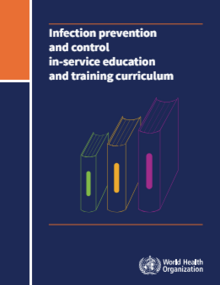The primary objective of this curriculum is to equip health and care workers with the essential knowledge and competencies necessary for delivering safe and effective care. By doing so it aims to significantly reduce HAIs and combat antimicrobial resistance , thereby safeguarding both patient and HCWs well-being. This curriculum is developed to meet the needs of IPC professionals responsible for developing learning resources and overseeing training within health care organizations. Moreover, the curriculum is intended to encompass all individuals involved in health care delivery and support. This holistic approach includes a wide range of staff -ranging from clinical workers to administrative and auxiliary services, thus ensuring a broad and inclusive approach to IPC training. The guide is designed to be flexible, allowing for adaptation to various educational and practical contexts to meet specific national and local IPC requirements and policies. It delineates three distinct competency levels within the curriculum: - foundational: introduces basic IPC principles applicable universally across all health and care worker roles;
- intermediate: delivers more detailed IPC practices, particularly for clinical practitioners in direct contact with patients;
- advanced: provides specialized IPC knowledge tailored for clinical specialists and managerial roles, reflecting the specific needs of their positions and settings.
|

